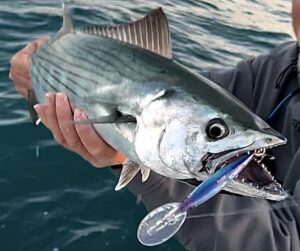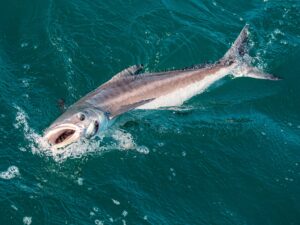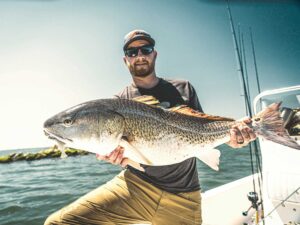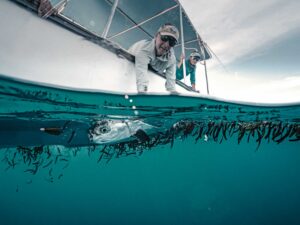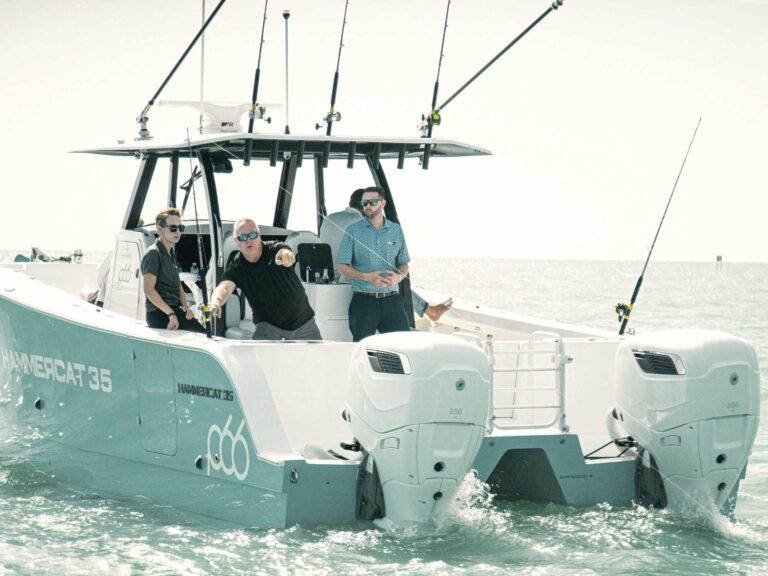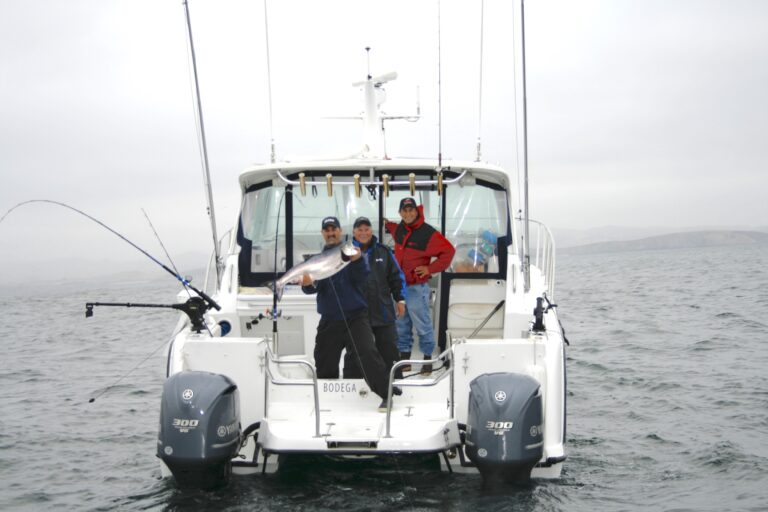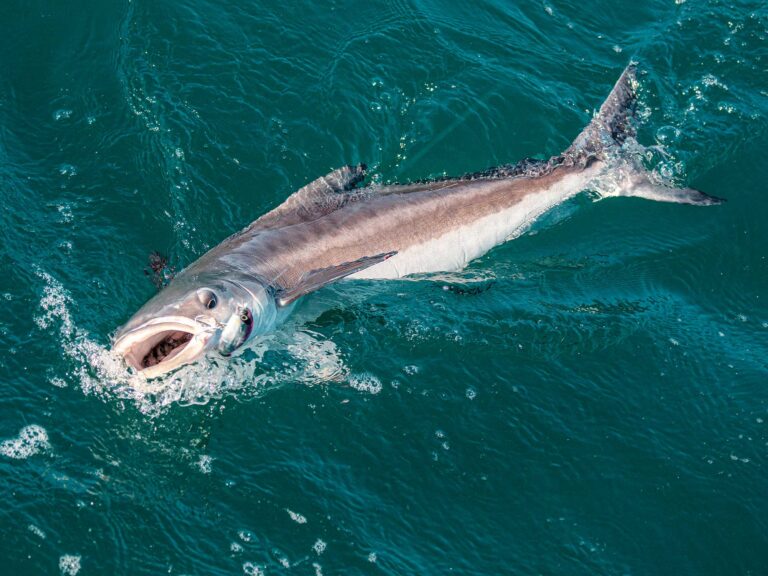In early 2003 and again in April 2004, President Bush met with representatives of several hunting and fishing groups, including the Coastal Conservation Association and the American Sportfishing Association. This was an unprecedented event that shows concern on the incumbent’s part, but many sportsmen believe that the president’s sudden interest should be taken with a grain of salt and that it was no coincidence that these meetings took place so close to an election.
However, Bush should be given credit for appointing a 16-member panel to complete the first major federal evaluation of the condition of the ocean in 35 years, the Oceans Commission report. This in-depth study, presented on Earth Day earlier this year, contained 250 recommendations to address declining ocean resources and pollution. Since its record on environmental issues has been less than stellar so far, it remains to be seen whether this administration will actually heed these recommendations.
**
||
|—|
| More On Election 2004Discuss this topic in our forums.**FFSW Election Forum*** * *Our partner, _Sport Fishing Magazine_, has posted editorials and responses from the candidates. You can read more and respond in their forms here:Sport Fishing Magazine |
Forests and Watersheds
**Timber interests were a big campaign supporter back in the 2000 elections, and few will disagree that the current administration has been pro timber industry. Bush has steadily chipped away at federal regulations that prevent new road construction and has allowed commercial logging on 58.5 million acres of national forests. The administration recently threw out the “roadless designation” for the Tongas National Forest in Alaska, allowing clearcutting to resume. It has also indicated that it will give individual states the right to ignore the National Roadless Area Conservation Rule, which currently prohibits the building of new roads on protected land.
In addition, the president’s Healthy Forest Initiative, signed into law in December 2003, actually eases environmental assessment and public review requirements for timber projects.
Mining Policies and Mountaintop Removal
Bush dealt watersheds another blow with his “mountaintop removal” policy. In 2002, he essentially nixed a longstanding provision of the Clean Water Act that prohibits the dumping of mining waste in streams. Under the guise of “clarification” of the law, a rule that restricted mining within a 100 feet of any flowing body of water was thrown out. It is now permitted under federal law to fill in these stream heads, as long as the mining company shows it is “minimizing waste.” The administration was not specific about how this should be accomplished. The new proposal leaves little or no recourse for local communities to protect their streams and waterways.
Factory Farms
Industrial hog farms in the mid-Atlantic region produce considerably more waste than do some cities, and no federal regulations require the farms to build sewage treatment facilities. Millions of gallons of pig feces and urine sit in multiple-acre lagoons until it’s sprayed onto feed crops as fertilizer. When rainfall is above normal, the waste all washes into the coastal rivers and sounds. The standing waste also leeches through the lagoons and into nearby waterways. The elevated nutrient levels result in massive algal blooms, and oxygen levels drop below critical levels, causing large-scale fish kills. These holding lagoons have also been linked to Pfiesteria, a parasite that has increasingly been found in fish and in people exposed to contaminated fish. The obvious answer is to require factory farms to build on-site wastewater treatment plants, but the industry claims that would be prohibitively expensive. Under the Clinton administration, the Environmental Protection Agency began putting pressure on these farms, but the Bush administration stopped enforcement investigations three years ago. The Department of Agriculture studies on bacteria were also stopped, and proposals to make owners of factory farms responsible for wastewater discharges were put on hold. A coalition of environmental groups and farm families continues to be unsuccessful at petitioning the EPA to end its moratorium on enforcement.
Salmon and the ESA
In the Pacific Northwest there have been long-standing disputes over water rights. The Bush administration’s 10-year water plan disregarded the Endangered Species Act – which protects numerous species of wild salmon – resulting in one of the biggest fish kills in history. Without the ESA, most salmon runs would have disappeared long ago.
Timber, farming and property rights advocates, who gave nearly $1 million to the Bush campaign during the 2000 election, have historically been thwarted by the Endangered Species Act. In a recent attempt to get around the act, the Bush administration claimed it would count hatchery-raised salmon in the stock assessment, increasing the salmon populations artificially. This would enable the administration to get rid of restrictions on commerce, development and the protected status for more than two dozen endangered species of salmon. The policy ignores the findings of the administration’s own panel of scientific experts.
**Mercury in the Fish We Eat
**President Bush’s clean air policy leaves something to be desired as well. Coal-burning power plants produce mercury that eventually makes its way into the oceangoing fish we eat. This year the Food and Drug Administration issued warnings about mercury levels in albacore tuna, urging pregnant women and young children to eat no more than 12 ounces of the fish a week. In the past, the agency has suggested that people limit their intake of shark, swordfish, king mackerel and tilefish, which have high levels of mercury, too. To comply with the Clean Air Act, the EPA recommended a 90-percent reduction in power-plant mercury emissions by 2008. Instead, the Bush administration proposed a “cap and trade” system for mercury that would lead to a 70-percent reduction by 2018. It’s interesting to note that the head of the EPA’s Office of Air and Radiation was previously a power industry representative and that many of Bush’s environmental appointees were once lobbyists for industries that were big donors to his campaign.
**Offshore
**The Bush administration has claimed that the Navy should be exempt from federal laws requiring them to assess harm to marine life when testing low-frequency sonar technology off the Pacific Coast. Environmental groups successfully sued, convincing a federal court not only that the law applied to the Navy, but also that suspending the law would open the door to a series of unregulated and damaging activities like ocean dumping and overfishing. In addition, the Bush administration has supported an increase in offshore drilling off the coasts of Alaska, Louisiana and Alabama.
**In Short
**The president has a record of drastically cutting the budget of just about every environmental program that exists and of favoring big business over conservation. President Bush does, however, claim to be a sportsman; hence his willingness to meet with hunting and fishing interests. Consequently, many believe that he will be open to listening to sportsmen and arguments in favor of keeping the exclusive economic zone closed to striped bass fishing (see the Jan/Feb 2004 Resource column). Many in the recreational fishing community also believe that Bush is more likely to support the federal Freedom to Fish Act.
For more information on policies of the Bush administration, visit www.whitehouse.gov.
| Discuss this topic further in our forums here. |

